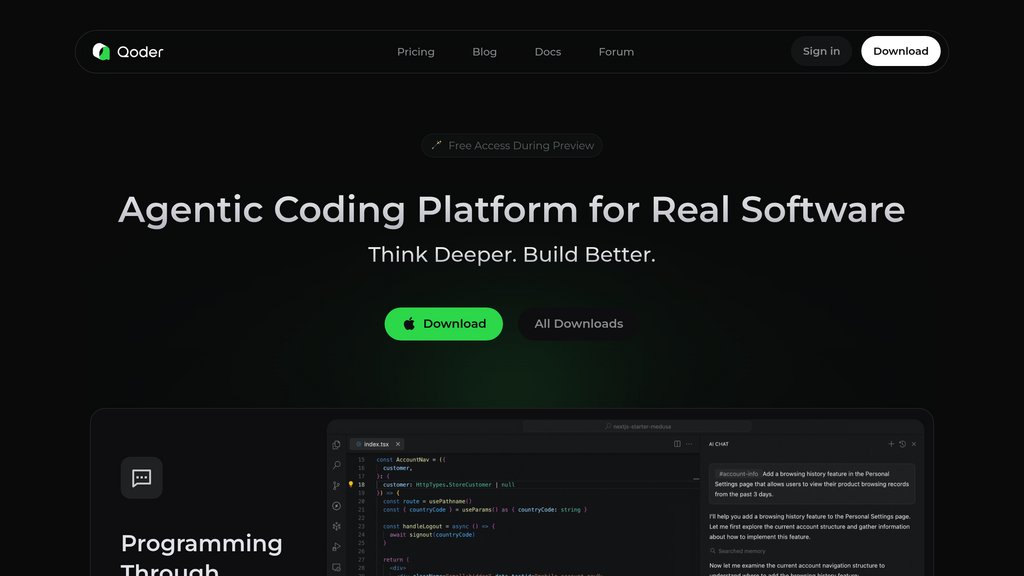Qoder
Alibaba intelligent coding platform automates development and testing workflow
Introduction
What is Qoder?
Qoder, developed by Alibaba, redefines software engineering by empowering AI agents to grasp intricate code architectures and independently execute planning, coding, testing, and deployment of production-grade software. The platform facilitates natural language task assignment, possesses profound contextual intelligence, adapts to programming styles through continuous learning, and seamlessly integrates leading AI models to automatically identify the most suitable one for each specific task. Qoder offers various operational modes, from collaborative pair programming for simple assignments to fully independent coding for complex projects, dramatically boosting developer productivity and code quality.
Key Features:
• Asynchronous Task Execution: AI agents independently manage the complete software development lifecycle based on developer specifications
• Comprehensive Codebase Analysis: Examines entire project structures to understand architectural patterns, design principles, and business logic for intelligent development and restructuring
• Adaptive Memory System: Continuously learns from developer interactions to personalize coding styles and workflow preferences
• Intelligent Model Optimization: Automatically selects the ideal AI model (including NES, Claude, Gemini, GPT series) for each task considering performance and cost efficiency
• Multi-Format Input Support: Processes various input types such as code files, visual diagrams, and project hierarchies to enhance task understanding
• Extensible Tool Integration: Supports both internal and external tool expansions within the MCP framework to broaden AI functionality
Use Cases:
• Accelerated Prototyping: Quickly create working application prototypes through verbal requirement descriptions
• Advanced Feature Implementation: Seamlessly integrate or modify components in extensive codebases with reduced manual coding, utilizing AI's deep comprehension
• Code Modernization: Automate enhancement processes and format updates in legacy systems to improve maintainability and efficiency
• Intelligent Test Generation: Produce thorough unit tests addressing multiple scenarios for existing code components
• Collaborative AI Programming: Engage interactively with AI assistants to accomplish routine coding tasks within a supervised, human-guided environment
